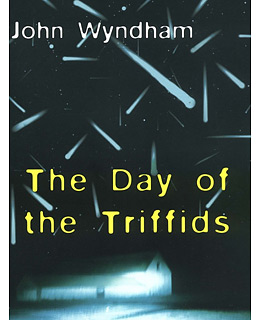
When I first read John Wyndham's The Day of the Triffids, it was the fall, not the summer, and I was supposed to be reading some school-sanctioned story about a girl and her horse. Instead, I was hiding in our hall bathroom, curled in the dry tub and devouring a 1951 sci-fi novel about global apocalypse. The novel's narrator, Bill Masen, is an affable botanist who survives the end of the civilized world. Anarchy is first loosed by a comet that blinds 99.9% of the globe's population, leaving our species vulnerable to attack by the Triffids—fearsome carnivorous plants—who can move.
It's a classic of British science fiction, but I didn't know that at the time. What I knew was that I must never ever let my sixth-grade peers catch me reading this book. Wyndham's tale forced me to reckon with certain uncomfortable truths about myself: I was a weird kid with no interest in sanitized tales of blond sisters and babysitters; I was excited by the spill of evil through the dying world. I wanted apocalypse, now!
In reality, I was just a very awkward sixth-grader, and each day of middle school felt like treading a dark suck of water. After enduring my first boy-girl dance, the apocalypse didn't seem half bad. In the postapocalypse, who cared what jeans you were wearing? Triffids were attacking (thank God!). And there is no guiltier pleasure for a reader, I don't think, than the dark, vertiginous thrill of a title like Chapter 1: The End Begins.
Russell is the author of St. Lucy's Home for Girls Raised by Wolves, which will be released in paperback in August.